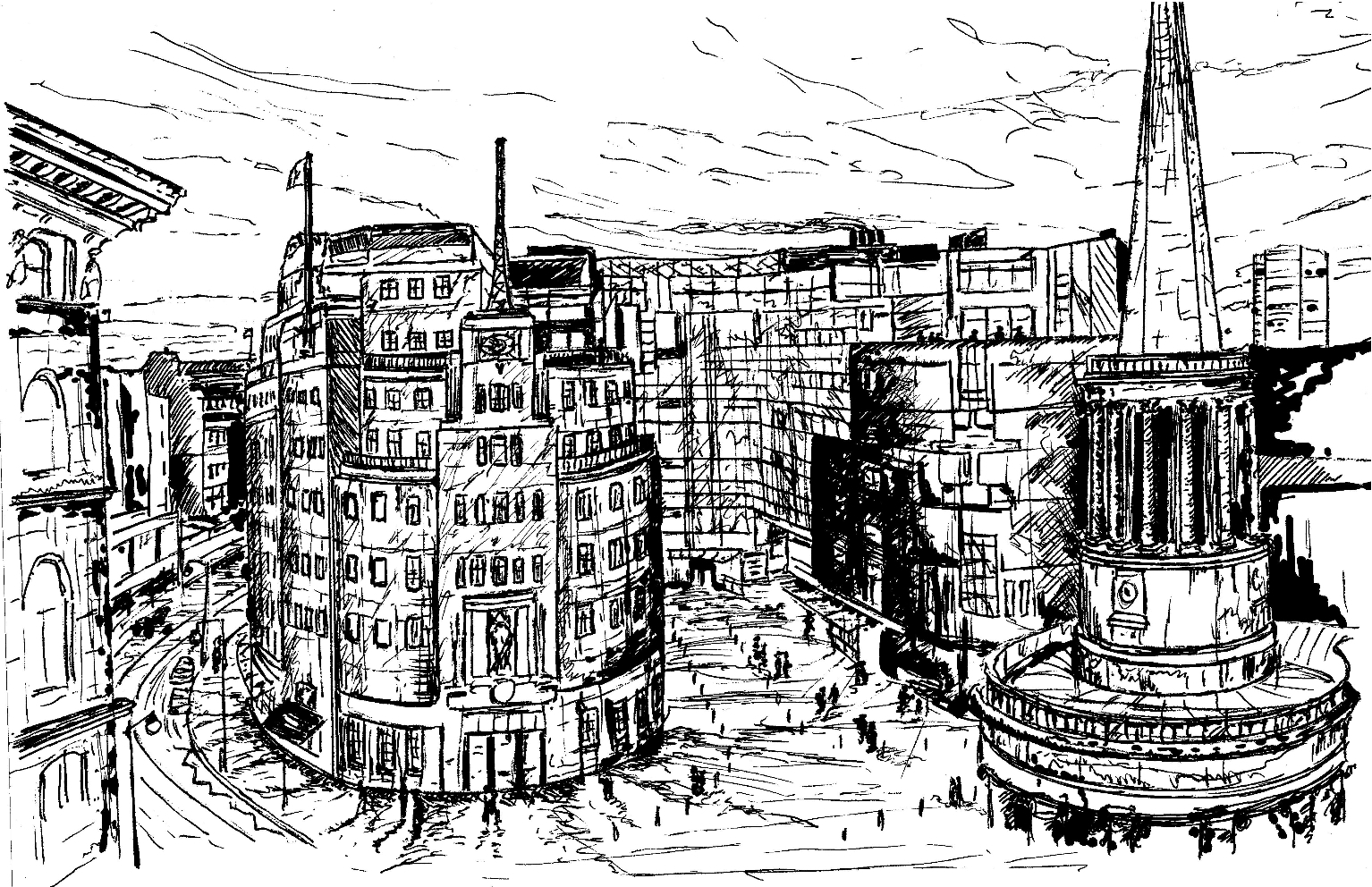Science: politically incorrect?
“We're led to believe everybody opposes it and disagrees with political correctness, yet everybody's scared to death of it. So, who is it? Well, it's the power structure wherever you happen to be.”
- Rush Limbaugh
What is political correctness (PC)? A good question. According to Wikipedia: “Political correctness is a term used to describe language, policies, or measures that are intended to avoid offense or disadvantage to members of particular groups in society.” I would say that in terms of common usage, i.e. what most people understand it to mean when they use the term, this definition is quite wrong. You know, I actually wrote most of this chapter before seeing the above quote, but Rush Limbaugh is about right – political correctness is “the power structure wherever you happen to be”. If you happen to be in the UK, or USA, you will find that being PC has got such a stranglehold that one can’t even discuss the subject without being considered politically incorrect. So, this chapter is highly likely to be politically incorrect; so perhaps I should not have written it and if you wish to skip to the next chapter, I’ll understand.
Congratulations, you don’t mind reading something that might be a little politically incorrect – that’s an important first step in combatting the PC threat.
If you live in the West, are a white male, and work in one of the professions (I would hesitate to say middle class since it seems to be unclear as to how this term is currently defined in the UK and it appears to have a different meaning in the USA), and you say anything
about race, gender, religion, or sexuality, it will be almost certainly considered politically incorrect and it is also likely that you will be considered to be prejudiced; so that even if you are not so, just by speaking you may find your career under threat. That’s another reason I should not have written this chapter.
In science, 2 + 2 always equals 4. In a PC world, 2 + 2 might equal 3, or it could equal 5; depending upon the race, gender, religion, or sexuality of the 2s. This is why I believe the Wikipedia definition of
PC is wrong – being PC, as it is commonly practiced, is not just a matter of language or presentation – it’s more than semantics. Being politically correct can involve treating people fairly and not being prejudiced, and when this occurs it is undoubtably a good thing. However, in practice, political correctness is often about asserting that reality is different than what it actually is, as a consequence of the value framework that makes up one’s PC world. Science is (or should be) about describing things exactly as they are. To quote Sherlock Holmes: “My dear Watson, I cannot agree with those who rank modesty among the virtues. To the logician, all things should be seen exactly as they are, and to underestimate one's self is as much a departure from truth as to exaggerate one's own powers.” By the way, you might protest that Sherlock Holmes was not a real person and perhaps that’s right, but in that case how can you explain the fact that there are (rather impressive) statues of him in London, Meiringen, and other places around the world? (I have to wonder: if a future woke mob decides Holmes was not PC, will they attempt to pull these statues down? Perish the thought!) And if he is fictional, how can he have more common sense and his feet more soundly on the ground than his famous creator? All respect to Sir Arthur Conan Doyle, but I have to wonder about what he was playing at in believing in the Cottingley Fairies. (By the way, speaking of Meiringen, the Sherlock Holmes Museum is excellent; if you have any interest in Sherlock Holmes do visit it.)
 The Statue of Holmes in London. (Photograph by the author.)
The Statue of Holmes in London. (Photograph by the author.)
Apologies for that digression, getting back to political correctness; as I mentioned, the problem with it is that it often attempts to make false claims about reality, depending upon the nature of its value system. This makes it the enemy of science, which is instead concerned with objective and dispassionate observation of the world as it actually is. If situations cannot be observed and evaluated objectively, then it becomes impossible to accurately identify problems; and if you don’t clearly understand a problem, you stand around 0% chance of being able to solve it.
Another problem with it is that it has a tendency to upset people on a large scale, which can lead to reactions that can seem extreme. A convincing argument can, for example, be made that Brexit and the election of Donald Trump in 2016 can be put down to reactions of large sections of society to the PC nature of the media and the politicians in the UK, Europe, and the USA – but discussion of that could itself form the subject of an entire book.
Also, it seems that it would not be right to have a section on PC without mentioning the BBC. I have always loved the BBC – or should I say Auntie Beeb
. From dramas with excellent production values, through to incisive documentaries and news (the BBC has more embedded/foreign based journalists than any other news organisations); from unrivalled natural history programmes to excellent coverage of sports and important public events, the BBC seems to offer everything, or at least it used to. Over recent years, the BBC has become more and more PC, so much so that its presentation style and selection of news stories seems to be moving farther and farther into a kind of PC wilderness that threatens to leave it isolated and in danger. Couple this with what seems, in our modern multi-technology internet age, to be an archaic ‘broadcasting poll tax’ and the Corporation appears to be entering an existential crisis.
Since I still love the BBC, I hope someone there will wake up and ‘cut the crap’ (as Greg Dyke used to say before he was forced to resign as Director General, following publication of a critical independent report – which was another sign of crisis at the Beeb). Yes, at the world’s most respected broadcasting organisation, someone needs to cut the PC crap; otherwise its famous tendency to navel gaze may turn into a painful disappearing up its you-know-what. By the way, since this book is supposed to be about science, I would just like to make one observation about the BBC – its science programmes seem to be about the only ones that do not currently appear to be highly biased by PC considerations – but it may not be long until they change that. I mean, even John Humphries – stalwart of Radio 4’s Today programme and veteran BBC broadcaster, has written a book where he lambasts the BBC for its PC culture.
So, what then is the chief problem with political correctness? Well, I would say it’s that it tries to tell you what to think and say. You know – 1984 and the Thought Police
; first communism, then fascism, and finally political correctness. But to be honest, most of us have been around a bit and we know a thing or two and have a reasonable ability to think for ourselves – we don’t need or want to be told what to think – unless of course science is telling us, and even then we need to be sure that the science is not getting mixed up in any way with PC considerations.
The BBC: always an icon of British culture – now also an icon of PC culture? (Pen and ink drawing by the author.)
The latter has, to some extent, already occurred, but analysis of that would again be the subject of a whole book. Perhaps the saddest thing about political correctness is the way it eventually ends up attacking and attempting to discredit members of the very groups it purports to support – and these are respected members of these
groups who are often role models. For example, consider Germaine Greer, who for years was a hero of the women’s movement/feminists. Today she is apparently under attack from the PC brigade for saying that it is not possible for a woman to change into a man, despite most people tending to agree with her and her views being grounded in scientific fact. And internationally, there are many other examples relating to race, gender, religion, or sexuality. Such attitudes can be explained if political correctness is not viewed as an attempt to achieve social justice for the groups concerned, or an effort to bring scientific truths to bear on society; but instead is a political movement that has an hyper-liberal and radically social liberal viewpoint, with little regard for scientific or general truths. In fact, scientific truth and quality of life are increasingly being sacrificed for the multitude, on the altar of politically correct ideology. And this is not just happening in the UK and USA – it is spreading across the globe.
OK, you may say, perhaps some of that is true, but why would that mean that PC is holding back science, and why, in particular, would it prevent science from having good impact and resulting in new technologies and products? Perhaps the first part of the answer to this question would be that if you put much of your time and effort into a subject such as analysing society in relation to PC questions, there is little time or resources left for actually establishing the new knowledge needed for implementing the advanced technologies of the new products. However, the more fundamental problems are the limitations or distortions, or actual fallacies that a PC culture introduces. The most common manifestation of this is the commonly encountered PC tendency, mentioned above, of refusing to admit, for PC reasons, that certain situations or problems exist, with all the attendant long-term societal disadvantages and limitations. However, serious issues also arise when PC attitudes become entangled with administration (as touched on above) and particularly, management.
 The Statue of Holmes in London. (Photograph by the author.)
The Statue of Holmes in London. (Photograph by the author.)
 The Statue of Holmes in London. (Photograph by the author.)
The Statue of Holmes in London. (Photograph by the author.)
